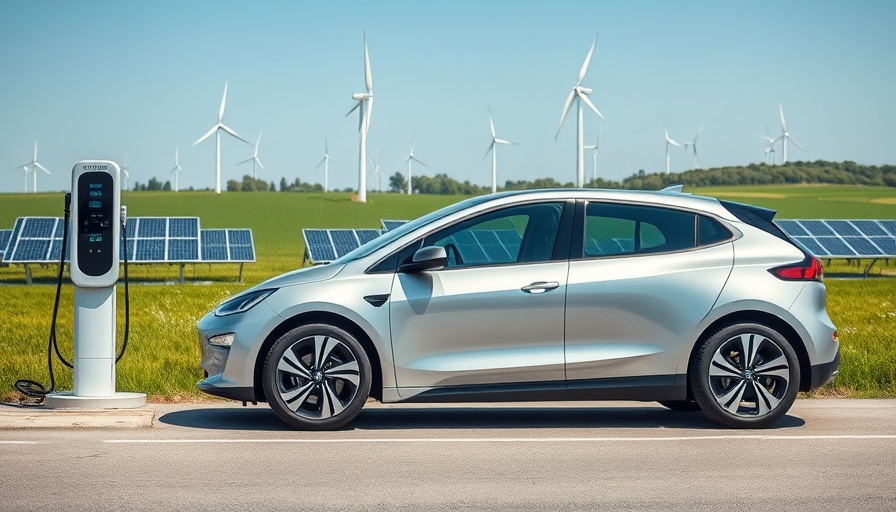
Investing in EV Charging: A Strategic Necessity for Healthcare Facilities
In today's rapidly evolving healthcare landscape, there is a growing discourse around sustainability and modernization. One key aspect of this transformation involves the installation of electric vehicle (EV) charging stations within healthcare facilities. These charging stations not only align with environmental goals but also improve the experience for patients, staff, and emergency medical services. However, convincing the C-suite to greenlight such investments requires a careful evaluation of both the financial returns and the overarching benefits to community well-being.
Understanding the ROI of EV Chargers in Healthcare
The return on investment (ROI) for EV charging stations isn't a straightforward calculation. Factors influencing this ROI include location accessibility, charger speed, competitive pricing, and the specific user demographics of the healthcare facility. Facilities that cater to a high volume of staff and patients, particularly in areas with substantial EV ownership, might find that increased utilization of charging stations leads to significant financial returns.
Consider a recent analysis by JD Power, which indicated that an electric fleet comprising 100 medium-duty cargo vans could save an invaluable 60 percent, or approximately $21.8 million over a span of ten years. This underscores the potential cost savings from transitioning to electric vehicles, appealing directly to decision-makers within healthcare organizations who prioritize budget efficiency and operational safety.
Environmental Impacts and Public Perception
Aside from the financials, EV charging stations reflect a commitment to sustainability that resonates well with eco-conscious consumers. By integrating EV chargers into their infrastructure, healthcare facilities can boost their public image and appeal to a demographic that values partnerships with organizations dedicated to environmental stewardship. Enhancing this aspect not only attracts patients but can also serve as a vital tool for recruiting and retaining staff who prioritize sustainable practices.
Maximizing Gains through Tax Incentives and Rebates
It’s crucial to recognize that there are financial support mechanisms available to healthcare facilities considering EV charging station installations. Current federal tax incentives, providing up to 30% off the installation costs, can significantly lower initial investment barriers. This benefit is compounded by additional state and local rebates that make the overall project more financially viable, allowing organizations to recoup costs more rapidly.
Utilizing these incentives can maximize potential ROI, and managers should keep themselves aware of evolving legislation and additional funding opportunities, particularly in light of the federal government’s recent commitment to electrification.
Strategic Pricing Models for EV Charging Stations
To appeal to both casual users and dedicated patrons, healthcare facilities need to structure their EV charging station payment systems effectively. Options like flat-fee charging may yield convenience and immediate returns, while metered billing allows for flexibility as it can be adapted to actual energy consumption or parking time. For instance, offering charging as a complimentary service for loyal patients or staff could enhance engagement and loyalty, while billing casual visitors at competitive rates could also boost revenue.
Anticipating Future Growth: EV Market Predictions
Looking ahead, the EV market is projected to surge, reaching upwards of $800 billion by 2027. This anticipated growth signals that investing in EV infrastructure today will likely yield tomorrow’s returns, as more consumers opt for electric vehicles. Healthcare facilities that strategically position themselves to meet this demand will not only enhance patient satisfaction but could also elevate their market competitiveness.
Conclusion: Taking Charge of Tomorrow
The conversation around EV charging in healthcare illustrates broader trends of sustainability and modernization that, when efficiently harnessed, benefit all stakeholders in the healthcare ecosystem. Whether your focus is on patient convenience, staff satisfaction, or cost savings, EV charging stations offer varied avenues of returns that can support strategic objectives for healthcare facilities. The time has come for decision-makers to embrace this transition, recognizing that the investment in EV infrastructure is not just a cost but a pathway towards resilient and responsible healthcare delivery.
 Add Row
Add Row  Add
Add 






Write A Comment